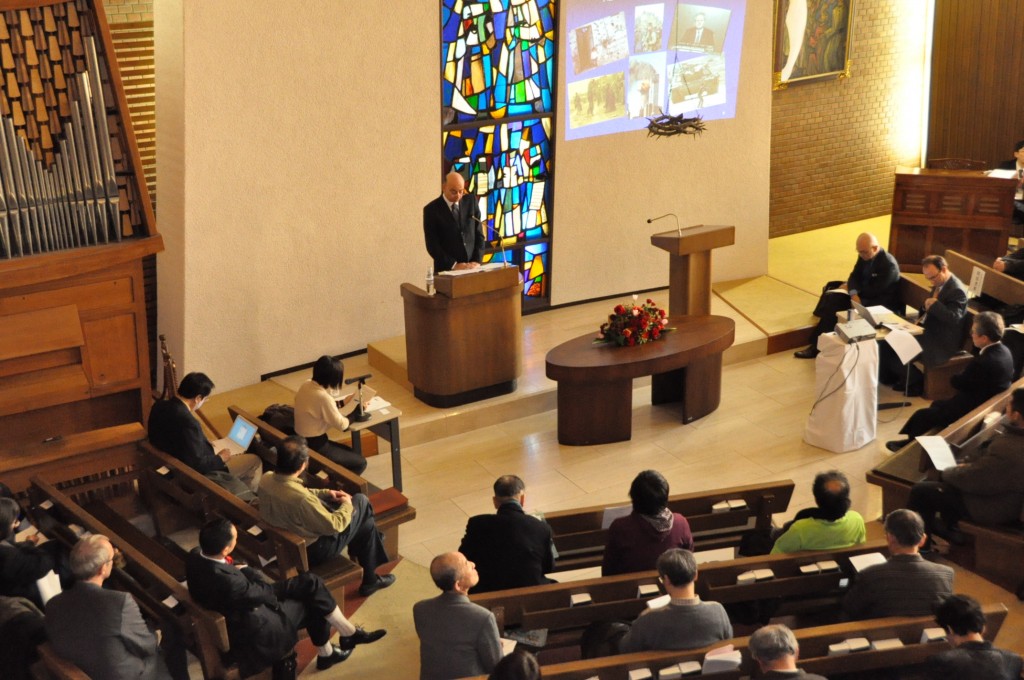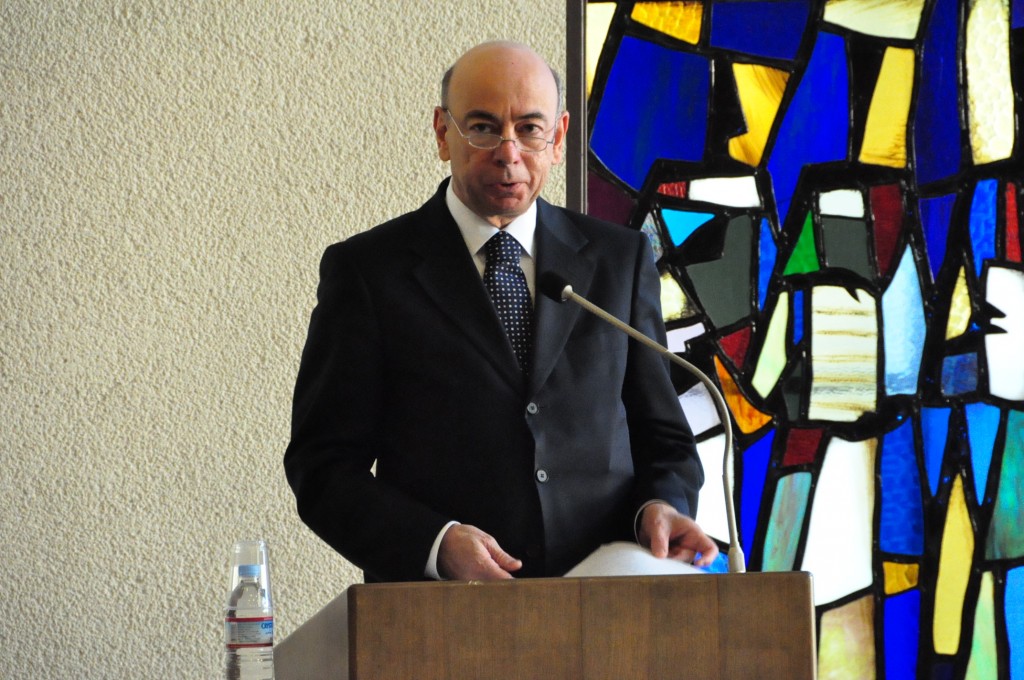Center for Interdisciplinary Study of Monotheistic Religions(CISMOR)Doshisha University
> Public Lectures > Turkey as a Bridge between Islam and the WestPublic Lectures
Public Lecture by Project 2
Turkey as a Bridge between Islam and the West
| Date: |
2010/01/30 13:00 - 15:00 |
|---|---|
| Place: | Divinity Hall Chapel, Imadegawa Campus, Doshisha University |
| Lecture: | H.E. Mr. Selim Sermet Atacanli, Turkish Amabassador |
| Summary: | |
|
The lecturer, H.E. Mr. Selim Sermet Atacanli, a Turkish Ambassador, has long been involved in public affairs in Europe and Southeast Asia, as well as in his home country of Turkey. This lecture centered on the role of Turkey in contributing to overcoming the “clash of civilizations,” as a bridge between the East and the West, between Asia and Europe, and between the Islamic world and the Christian world. He began the lecture by explaining the position of Turkey in today’s world. The Cold War that followed World War II divided the world into the Eastern Bloc and the Western Bloc, where the world’s countries were viewed either as friends or enemies in terms of political ideology. In the 1970s, these tensions began to ease, and in the 1980s, the world saw the fall of the Berlin Wall and the collapse of the Soviet Union. In the 1990s, however, the emergence of “fundamentalists” and “terrorists” posed another threat, and the world was again divided by “civilization”—a comprehensive concept that encompasses “culture.” This gave rise to new hostility among different civilizations; especially, hostility toward Islam grew more intense in the wake of the 9/11 terrorist attacks. U.S. President Barack Obama, by visiting Ankara in Turkey and Cairo in Egypt, called on the people of the world to overcome such hostility and stated that Muslims are not the enemies of America. In a sense, the “clash of civilizations” renewed our awareness that tensions and conflicts repeatedly occurred during our history, and this presented the faulty notion that there could be some interior/superior relationship among different “civilizations.” Turkey is located at the middle of different civilizations. According to the lecturer, Turkey has been striving to serve as a bridge connecting different cultures, as an Islamic, secularist, and democratic state. Their basic policy is “harmony in diversity,” which was taken over from their predecessor, the Ottoman Empire, which boasted great ethnic and religious diversity. Mustafa Kemal Atatürk, known as the father of modern Turkey, advocated the idea that “civilization” is one sea and different “cultures” are rivers feeding the sea. As one of the measures to put this idea into practice, the “Alliance of Civilizations” initiative was launched in 2005 under the leadership of Turkish Prime Minister Recep Tayyip Erdogan and Spanish Prime Minister Jose Luis Zapatero, who have met several times as representatives of the Islamic world and the Christian world, respectively. The “Alliance” has convened meetings regularly in Istanbul, New York and other cities, and its activities are highly evaluated by the Secretary General of the United Nations and many others. In line with the basic principle of denying cultural exclusivism and treating human dignity as the most important value in the world, the “Alliance” is working to build a network connecting various international organizations and civil societies, along with promoting inter-governmental cooperation. In addition, Turkey has been dedicated to diplomatic efforts in its own way in order to reconcile conflicts and encourage cultural exchange in Asia and Eastern/Western Europe in pursuit of “domestic and international peace”—a motto it has upheld since its foundation. According to the lecturer, at the core of such efforts is the diplomatic policy of Turkey that emphasizes humanitarianism as a member of the global society. Referring to the past efforts of Japan in bridging the East and West, Mr. Atacanli concluded the lecture by expressing anticipation for academic exchange and other friendly interactions that would take place between the two nations during JAPAN YEAR 2010 in Turkey. Kenichiro Takao (Graduate Student of School of Theology, Doshisha University) |
|
| *This lecture is given in English, with Japanese consecutive interpretaion. Admission Free. *Advance reservations are required,For further details on procedures, follow the instruction below. *Inquiry: 075-251-3972 (CISMOR) | |
|
Program(Japanese) |
|

